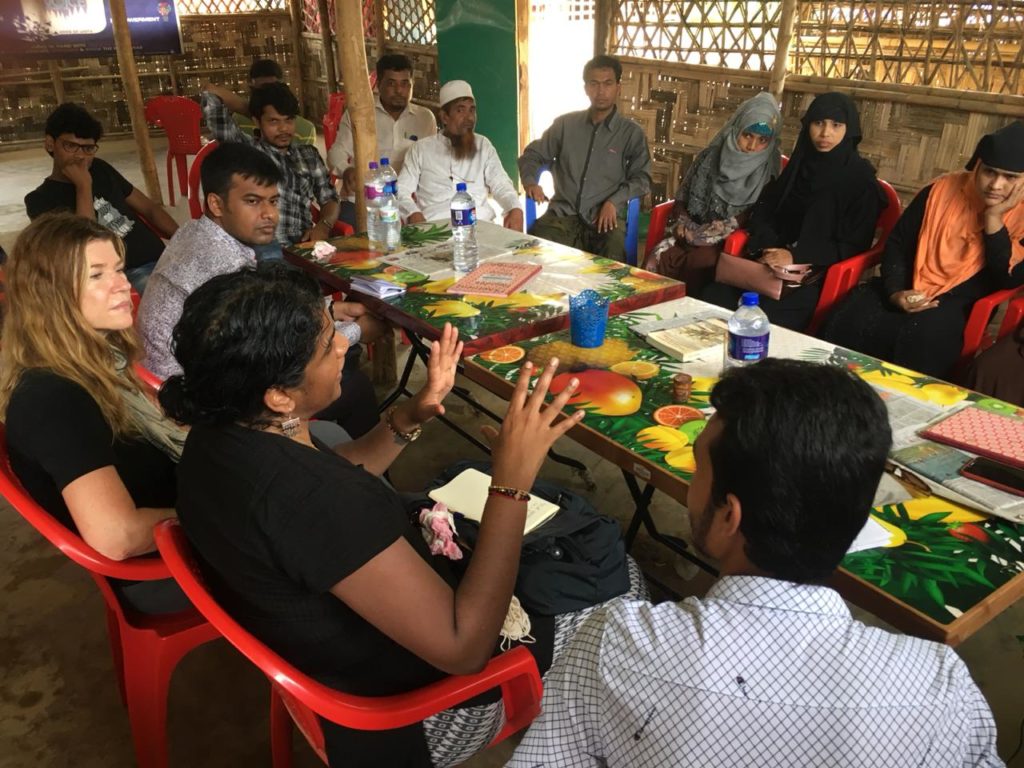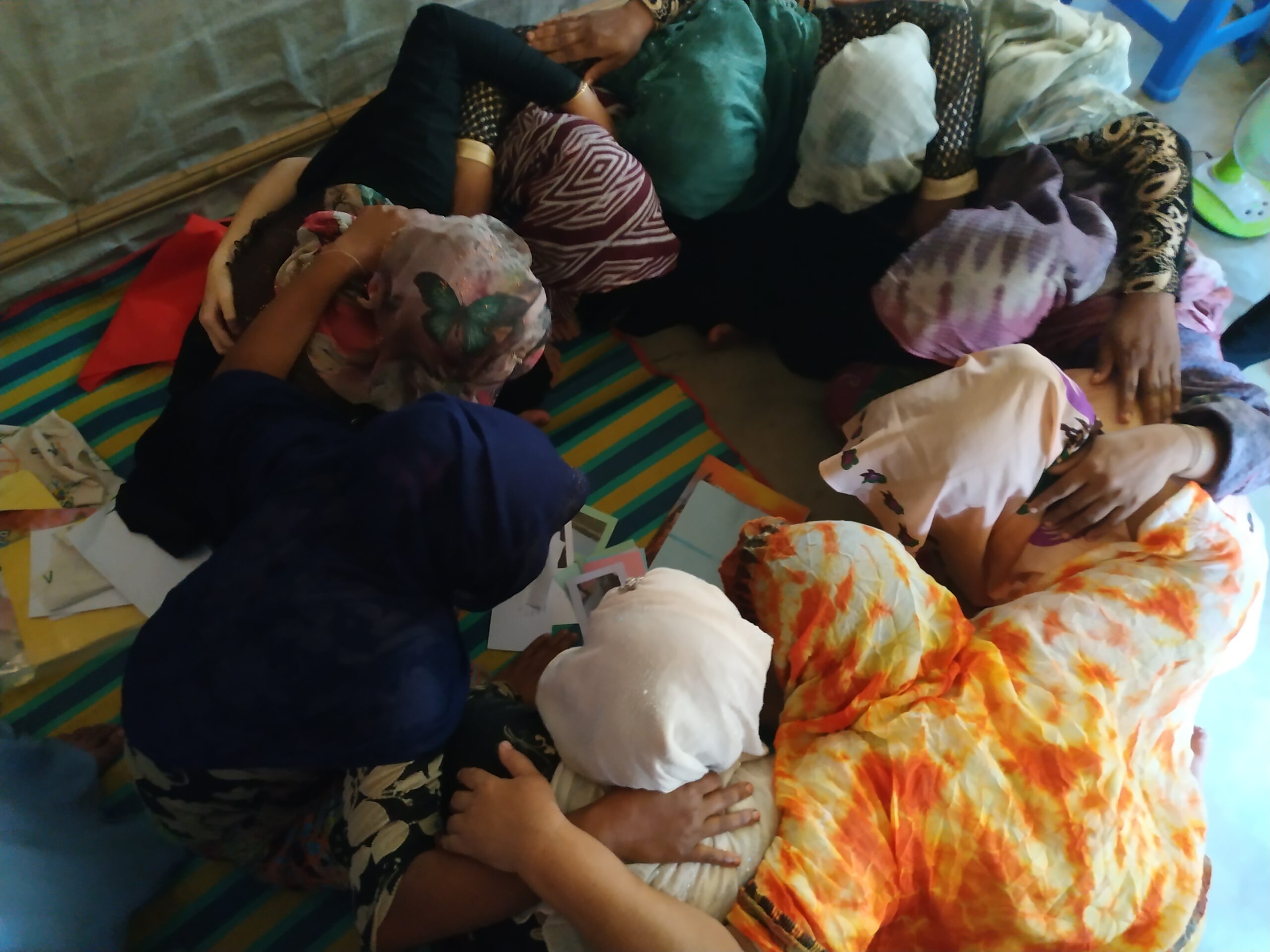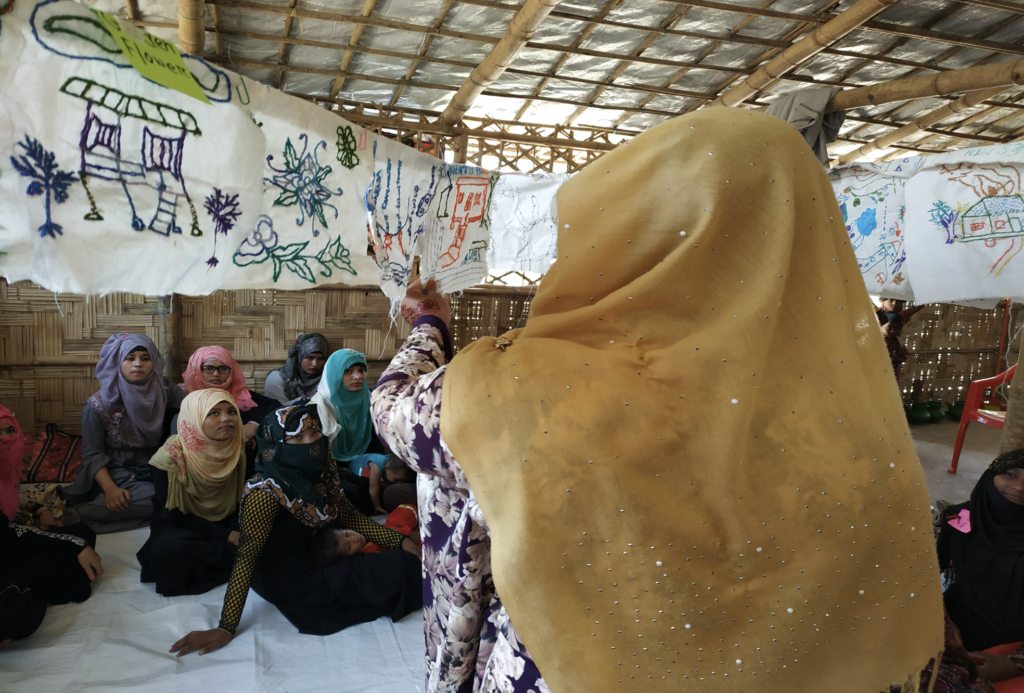According to the UN Refugee Agency (UNHCR), over 740,000 Rohingya refugees have relocated to Bangladesh since August 2017, fleeing persecution in the Rakhine state of Myanmar. The Rohingya – a Muslim ethnic minority with their own language and culture – had been increasingly isolated by state forces for decades. The UNHCR reports that the majority of Rohingya refugees are women and children – with more than 40 percent under the age of 12.

Knowing that in post-conflict settings, documentation is an essential element of accountability and peaceful futures, the Coalition’s Global Initiative for Justice, Truth and Reconciliation (GIJTR) began working in refugee camps in Cox’s Bazar, Bangladesh in early 2019, training local activists to lead documentation efforts. While international agencies may conduct such initiatives, they generally conduct them with local activists working only as interpreters or “fixers”. GIJTR’s experience in Iraq and elsewhere has shown that training documenters from within the community to lead these efforts is a far more effective approach. Unlike international efforts, locally led and coordinated civil society documentation efforts can build trust among survivors and reach communities outside the scope of efforts led by external international organizations. Locally led efforts also remain within their communities long after international agencies leave – paving the way for a sustainable peace.
Given that women and girls are disproportionately affected by conflict, and that in recent months there has been a spike in domestic violence reported in Rohingya camps in Bangladesh, GIJTR’s work in this context has prioritized ensuring that women’s voices are not lost in this process. Many Rohingya women in the camps report there is no legal recourse for threats or harmful acts against them or their children.
Special care has been taken in the GIJTR documentation initiative to identify female leaders within the community and to train a group of them as documenters in preparation for community-led documentation missions. Trainings have been conducted by GIJTR partners, including the Public International Law and Policy Group (PILPG), initially in the camps, and as the COVID-19 crisis grew, through a local partner NGO, in parallel with public health initiatives in the camps.

To further address this challenge of gender-based marginalization, in February 2019, GIJTR – through its Indonesian partner Asia Justice and Rights (AJAR), conducted two workshops with 20 Rohingya women in camps in Cox’s Bazar. The workshops provided space for women to share experiences, challenges and hopes for the future. Women expressed fear about what may happen to their children and were interested to learn more about everyday justice in the camps. Participants also expressed a willingness to share their experiences with the wider community, which some, as leaders of network sub-groups in the camps, are well-equipped to do.
Despite the COVID-19 pandemic, GIJTR and AJAR have continued to work with Rohingya women throughout 2020, beginning with a February session on self-care to discuss issues of emotional balance and self-evaluation with 18 women. The session included relaxation techniques and self-care activities like reflexology. Many women reported being unable to sleep because of nightmares related to the trauma they have suffered. After attending the workshops, participants described mental and physical improvements in their lives. One woman said, “I used to rarely leave my house. Now I am happy to join these meetings, share stories and experiences.” As a follow up, in March 2020, four surveys were conducted with over three dozen women in Rohingya camps to measure skills, motivations and expectations for future action. The reflections by these groups were used to gauge interest and will assist in the development of GIJTR’s work in the camps.

To address COVID-19’s impact on women in the camps, GIJTR partner AJAR conducted daily COVID-19 “Awareness Discussions” with members of the network of Rohingya women facilitators. The aim of these conversations was to listen to how the women were feeling and provide a safe space for them to voice their concerns and how they are processing any changes during these times. In the initial months, women reported many misperceptions about COVID-19 that were spreading through the camps. In response, AJAR communicated directly with 80 women, providing accurate information on COVID-19 risks and mitigation measures. The women have since shared this information with at least 375 others, protecting these and many others’ lives.

In May 2020, GIJTR and AJAR collaborated with the Liberation War Museum (LWM), a founding Site of Conscience in Dhaka, Bangladesh, to launch an online exhibition sharing stories from Rohingya women survivors told through embroidered panels (See “Quilt of Memory and Hope: Story of Rohingya Women Survivors”). With 120 individual but connected panels, the three “quilts” bring together the women survivors’ stories as one collective voice. Creating these panels was a way for women to speak about their memories of the homes they fled and what they hold dear, as well as their hopes for justice. Preserving and sharing these stories through art projects is an essential element to larger documentation efforts, which might otherwise not have accessed or recorded these experiences.

Building on this initiative, GIJTR and AJAR started a new quilt project with Rohingya women in the summer of 2020 on “Quilting for Justice During COVID-19”. Sewing is a common pastime for many of the women, and is a powerful example of how art can unite, heal, and spur action. Women in the camps have already requested more sewing materials, as they together continue to “quilt for justice” during the pandemic. The women sewed stories that share how they feel during the pandemic, how their lives have been impacted, and what kinds of injustices they have experienced. There was a core group of 80 women, but this regularly swelled to more than 100 – suggesting there is no shortage of women eager to share their stories through the arts.
Unless otherwise noted, all photos are credited to Asia Justice and Rights (AJAR).
